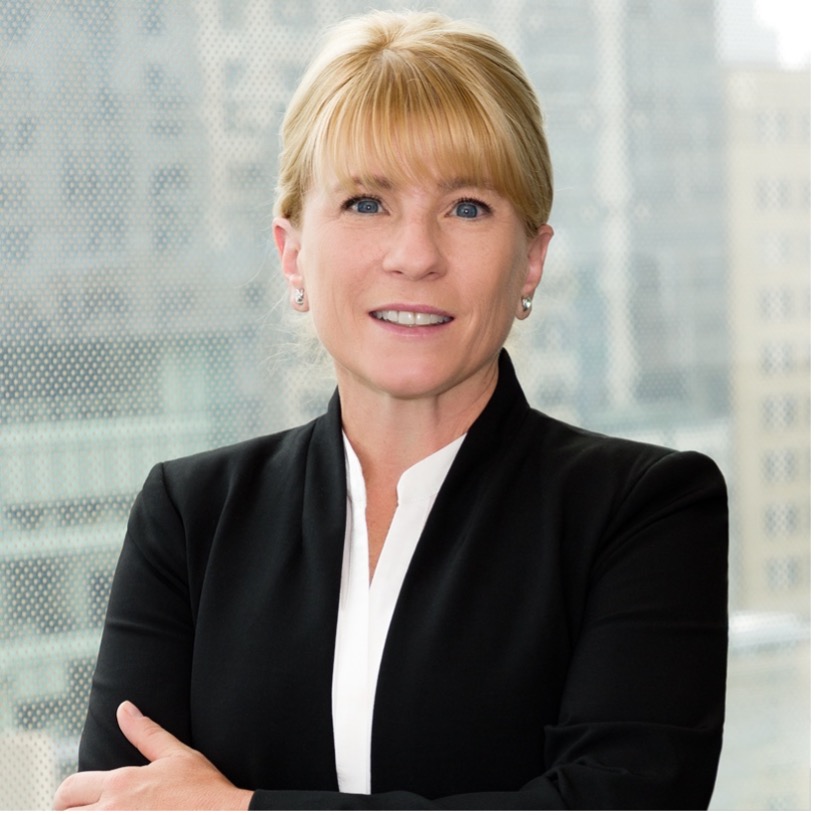Faculty Spotlight: Shana Kelley

By Sarah Anderson
Shana Kelley wants to put your health into your own hands. While pursuing her Ph.D. in chemistry at the California Institute of Technology under National Medal of Science winner Jacqueline Barton, Kelley studied the electrical properties of DNA and discovered that mutations could be uncovered by measuring how well it conducts electricity. She patented the technology and co-founded the company GeneOhm Sciences, which used it to create devices to quickly identify bacterial infections in hospitals. With the goal of expanding fast, convenient diagnostic testing to home settings, Kelley’s research program has focused on developing new methods to detect biological markers of health conditions such as heart failure, diabetes, and infectious diseases like COVID-19. She has started three additional diagnostics companies, patented over 50 inventions, and earned many awards, including the American Chemical Society Inorganic Nanoscience Award, the Camille Dreyfus Teacher-Scholar Award, and the National Science Foundation CAREER Award. In Fall 2021, Kelley joined Northwestern University as a professor of chemistry and biomedical engineering from the University of Toronto.
Why did you decide to make the move to Northwestern?
It was an easy decision. Northwestern is an incredible university, and the chemistry and biomedical engineering departments are world-class communities of great scholars, researchers, and educators.
Why are you passionate about developing technology for diagnostics?
There are so many unmet needs that have been around for decades and unsolved problems that need new solutions. As a scientist, you have this tremendous opportunity to tackle big problems. It's so important to diagnose infectious disease quickly — we're living through that now.
You recently published research on a method to detect COVID-19 viral particles and started Arma Biosciences, a company focused on portable monitoring of health conditions, including COVID-19. How did the pandemic redirect or reinforce your research and business goals?
I've worked on diagnostics for infectious diseases for a long time, and the commercialization of technologies for this application was an uphill battle because even $25 was a lot for the healthcare system to pay for a test. But then the pandemic happened, and it became abundantly clear to everyone that the cost of not having the tools we need to diagnose viral infections quickly is immense. To me, the pandemic was a call to action demonstrating that we need fast diagnostic tools that can be used in the home. Hopefully we’ll take what we've learned from the pandemic and apply that across the board to allow people to manage their own health.
What inspired you to pursue a career in chemistry?
Chemistry was the subject in which I did the best in high school. I didn't think I wanted to pursue chemistry; I actually went to university to study business. But I started classes and I really didn't like it — macroeconomics, microeconomics, I couldn't really relate to it. I took chemistry classes, and I just loved that chemistry was so concrete, that you can explain it with math and physics and build up a conceptual picture of how molecules come together. I loved the conceptual framework of chemistry, but even more, I loved going into the lab and running an experiment that nobody had ever run before.
Did you ever imagine that you would be able to combine business and chemistry in the way you have?
I didn't. That was not in the plan originally, but I was very fortunate that the work that I did as a graduate student turned into a company, so I got this very early exposure to what it's all about, how you build companies and how you finance them.
One of your diagnostics companies, Xagenic, was rejected 83 times by investors. How have you stayed motivated throughout challenges like that?
You have to have a thick skin as a scientist. People are going to say critical things about your papers or grant proposals, you're constantly being told “no,” and so you have to keep persisting and pushing. Raising money for companies is the same way — you have to be incredibly persistent. I don't think anybody's ever funded a company by having one meeting, getting one investor, and closing one deal.
What advice do you have for female scientists interested in a career in academia or industry?
It's important that you find the right mentors that support you and think with you about the options that you have for pursuing a great career — people that can help you evaluate different career paths and think about how you can really hone your strengths. I had an absolutely fantastic graduate adviser, and my success can definitely be traced to having mentoring that helped me emerge from the Ph.D. as a confident and really motivated scientist.
What is one thing not on your CV that you would like us to know?
I come from a family that's a unique hybrid of business focus and social causes. One side of my family was very entrepreneurial and in the construction and building business, and the other side was all about social causes. So, I grew up in a very interesting environment that taught me two things: You have to care about people, and you have to learn how to build your own enterprise. My parents instilled in me the importance of doing these two things and doing them really well.
